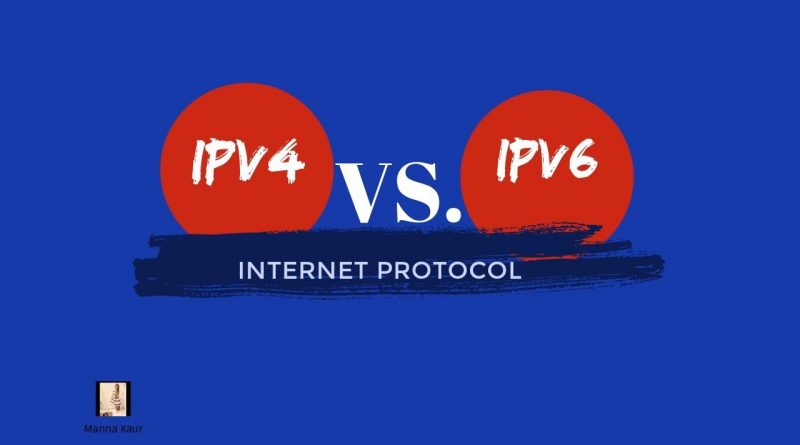ipv4 vs ipv6 (Internet protocol)
IPv4 and IPv6
Difference between IPv4 and IPv6
Internet Protocol is connectionless and unreliable protocol. It ensures no guarantee of successfully transmission of data.
In order to make it reliable, it must be paired with reliable protocol such as TCP at the transport layer.
Pv4 stands for Internet Protocol version 4. It is the underlying technology that makes it possible for us to connect our devices to the web. Whenever a device access the Internet (whether it’s a PC, Mac, smartphone or other device), it is assigned a unique, numerical IP address such as 99.48.227.227. To send data from one computer to another through the web, a data packet must be transferred across the network containing the IP addresses of both devices.
Without IP addresses, computers would not be able to communicate and send data to each other. It’s essential to the infrastructure of the web.
IPv6 is the sixth revision to the Internet Protocol and the successor to IPv4. It functions similarly to IPv4 in that it provides the unique, numerical IP addresses necessary for Internet-enabled devices to communicate. However, it does sport one major difference: it utilizes 128-bit addresses. I’ll explain why this is important in a moment.
#ipv4vsipv6
#MannaKaur
source
ipv4



